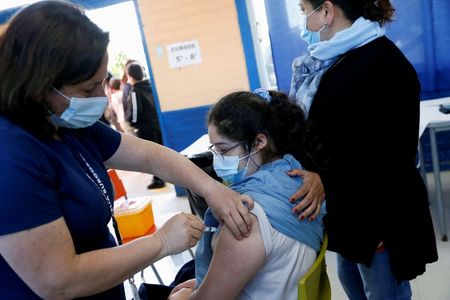SANTIAGO (Reuters) – Chilean authorities announced on Monday the end of a state of emergency in force since the start of the coronavirus pandemic, a sign of life returning to normal following a sharp decrease in cases in the South American nation.
The state of emergency, an extraordinary administrative measure approved by Congress early in 2020, had allowed the government to impose night-time curfews and forced quarantines on hard-hit districts amid the worst of the outbreak.
“During the last three months…the health situation …has evolved favorably, with a very significant reduction in infections, active cases, hospitalizations and deaths,” President Sebastian Pinera told reporters.
Chile has spearheaded one of the world’s fastest and most successful vaccination drives, with nearly three-quarters of its population fully vaccinated, according to a Reuters tally. Infections have plummeted as a result.
The government said it would also relax restrictions on movement, liberalize limits on capacity at events and public spaces and earlier this month re-opened its borders to tourists.
The announcement comes the same day as the health officials began vaccinating children between 6 and 11 years old with China’s Sinovac vaccine, which received approval for emergency in September.
Neighboring Argentina last week also unveiled plans to ease coronavirus pandemic restrictions, including loosening strict border controls, allowing more commercial activities and getting rid of the mandatory wearing of face masks outdoors.
Chile reported 640 new cases on Monday, with a positivity rate of about 1.08% in the past 24 hours.
(Reporting by Fabian Cambero; Writing by Dave Sherwood; Editing by Alistair Bell)





